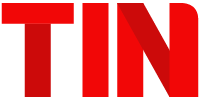Trimax designs, manufactures, and distributes commercial mowing equipment. Currently ranked 55 in the TIN200, the firm remains based in Tauranga, where it was founded in 1981. Trimax has manufacturing, assembly and warehousing facilities in New Zealand, Australia, the United Kingdom, and the USA. CEO Michael Sievwright tells us about their year.
When you were last spotlighted with TIN in June 2023, you were automating a lot of your manufacturing. 12 months on, what returns are you seeing on this investment?
Implementing automation has been a lengthy endeavour, especially in a medium-volume manufacturing environment, it hasn’t been all plain sailing. One of the key challenges we had was getting clear on what aspects of our production line we should automate. As with the introduction of any new manufacturing process, we are constantly making improvements, but we are seeing enhancements in efficiency and consistent quality across various areas.
You operate in both a B2B and B2C space – how do you balance these?
Our preference is to always be working with local partners; however, we also operate directly in regions where its more effective to do so. Our service resources and aftersales support is available to everyone. It’s about offering the best experience we can through all touchpoints of the customer journey and that’s led us to a mixed model.
Are there any recent product launches or company milestones you’d like to highlight?
In the last 12 months, we’ve reached several significant milestones. Our global manufacturing footprint has doubled, substantially enhancing our production capacity to meet the increasing demand for our products. In terms of product innovation, 2024 will see the highest number of new product launches in a single year for us.
Locally, we’re broadening our horticulture range, which now includes our first gear-drive mower alongside our existing lineup of belt-driven horticulture mowers.
Globally, we’re launching products that integrate electrification, autonomy, and software solutions—technologies we’ve been developing for a while which are essential for meeting evolving customer demands.
NZ is a world leader in agritech but agriculture also forms the bulk of our carbon emissions. What role do you see Trimax playing in tackling climate change?
As a company we focus on practical measures that align with our core business values. Historically Trimax shipped heavy equipment worldwide. However, through establishing local facilities in key markets we’ve not only improved efficiency but also significantly reduced our dependence on long-distance air and sea freight.
As well as reducing our logistical footprint, sustainability and efficiency extends to the durability and quality of our products. Our machines are designed to last for decades, with some still operational after 30 years. We also refurbish older equipment whenever feasible, not only to minimizes waste but to extend the useful life and provide maximum value for the customer.
What are the opportunities and threats for you in the current economic climate in New Zealand and overseas?
In the current economic climate, we see significant opportunities and some challenges. Our mowers, known for their lower total cost of ownership compared to competitors, tend to perform well. This advantage attracts customers who previously relied on more expensive equipment like dedicated mowers or ride-on models.
There’s always uncertainty and extended buying cycles in recessionary environments. Inflation raises the costs of essential components, increasing the production expenses of our products. However, these factors prompt us to reevaluate processes and we’ve recently brought some operations back in-house, leveraging our expanded manufacturing capacity.
Additionally, our diverse market presence across multiple sectors provides resilience against downturns specific to any single industry.


